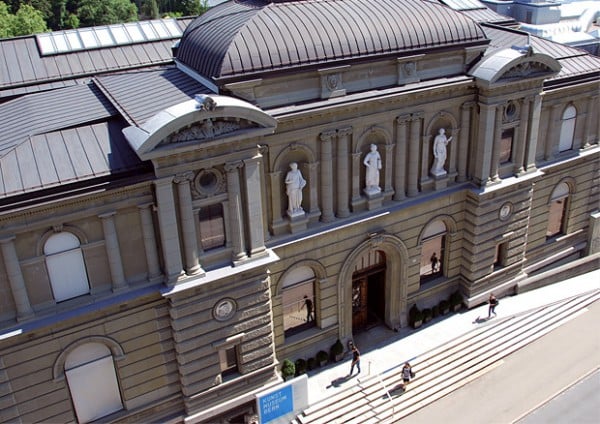Law & Politics
Swiss Museum’s Decision on Gurlitt Art Trove


Rozalia Jovanovic

The Kunstmuseum Bern, the Swiss museum to which German collector Cornelius Gurlitt bequeathed his collection in a secret will before he died this past May has announced that it will make its decision on whether or not to keep the art by November 26. The trove of roughly 1,000 works includes some valuable ones by artists such as Henri Matisse and Max Liebermann that were looted from Jewish families by the Nazis.
Members of the museum board have a meeting scheduled for that day anyway, as per the Wall Street Journal. At the meeting, the board will consider a report by the museum’s lawyer, Beat von Rechenberg, who, since June, has been looking into the tangled history of the collection to determine what legal obstacles may exist to acquiring the collection. He’s already been in touch with Art Recovery International‘s Christopher Marinello, the lawyer who represents the heirs to Henri Matisse’s Seated Woman/Woman Sitting in Armchair (1921), the most celebrated work in the collection and one that dealers believe could bring in as much as $20 million at auction.
In June, the Gurlitt Task Force issued its determination, and its first public conclusion about work from Gurlitt’s discovered cache, that the Matisse painting had been looted by the Nazis and was the rightful property of the collection of storied French collector Paul Rosenberg (see “Matisse from Gurlitt Trove Once Belonged to Paul Rosenberg“). Since then, it has also determined that the 1901 painting Max Liebermann painting Two Riders on the Beach (see “Gurlitt Task Force Sides with Nazi Victim“) should be returned to New York City-based David Toren, whose great uncle David Friedman once owned it and from whom it was stolen by the Nazis over 70 years ago.
As per an agreement that Gurlitt made a month before he died, all works shown to have been looted must be returned to their rightful heirs. The task force has one year, from the time it was assembled in April (see “Gurlitt Gives German Task Force One Year to Research Provenance of Suspected Nazi Loot“), to make its determination on works in the trove that have questionable provenance.
According to individuals familiar with the case, per the Wall Street Journal, von Rechenberg and his team don’t expect any serious setbacks, and it’s likely that the Kunstmuseum will accept the works.